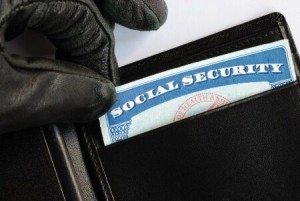Taxpayers that are unable to pay their tax bill have several options. All is not lost. Taxpayers who can’t pay their tax liability or who create a financial hardship by paying this liability may take advantage of a federal tax program in which they utilize a mechanism known as an “Offer In Compromise” to resolve and settle these tax problems with finality. The Offer in Compromise (or “OIC” in IRS and legal jargon) program is not for everyone and the IRS advises that taxpayers explore all other payment options before submitting an OIC. An experienced tax professional is absolutely essential in all steps of the process of formulating, making, and awaiting the IRS to accept, an OIC.
PAYROLL TAX: THE TRUST FUND RECOVERY PENALTY
Employers must deduct taxes from their employees’ wages. Employers must make tax deposits and payments on time or they are subject to a Trust Fund Recovery Penalty (“TFRP”). To avoid the TFRP, employers must make sure that all employment taxes are collected, accounted for, and paid to the IRS when required . There are three parts or types of payroll or employment taxes withheld from the employee and reported on form 941, filed quarterly:
their employees’ wages. Employers must make tax deposits and payments on time or they are subject to a Trust Fund Recovery Penalty (“TFRP”). To avoid the TFRP, employers must make sure that all employment taxes are collected, accounted for, and paid to the IRS when required . There are three parts or types of payroll or employment taxes withheld from the employee and reported on form 941, filed quarterly:
REPORTING GAMBLING LOSSES AND INCOME
Americans love to gamble. Humans love to gamble for that matter. Whether you bet on football, play poker or bet on the horses, your winnings are taxable and you must report them on your tax return. The rules apply even to casual gamblers. Gambling income includes winnings from lotteries, raffles, horse races and casinos. It also includes cash and the fair market value of prizes you receive, such as cars and trips.
TEN WAYS TO PREVENT IDENTITY THEFT
 The damages caused by identity theft may take years to fully remedy. Here are ten tips for avoiding identity theft:
The damages caused by identity theft may take years to fully remedy. Here are ten tips for avoiding identity theft:
1) Protect and monitor your credit. Regularly check your credit report to see if any fraudulent credit cards or accounts have been opened in your name. Monitor your credit by taking advantage of free credit reports and consider purchasing additional intermittent reports for continuous oversight of your credit. If and when necessary, place fraud alerts and credit freezes on your account.
TOP TEN TAX FACTS ABOUT HOME SALES
Selling a home is a stressful experiences, but when you consider all of the tax issues related to such a sale, it may be an overwhelming one. In most cases, gains from the sale of property, both personal and real, are taxable. However, the seller of a home may not always have to pay taxes. if you sell your home this year, here are ten facts to know.
HOW MUCH OF MY MORTGAGE CAN I REALLY DEDUCT?
What can taxpayers deduct from their mortgage payments? What portion of a payment consisting of principal, interest, taxes and insurance, if any, is deductible? To deduct the expenses of owning a home, at least those costs paid in your mortgage payment, taxpayers must first itemize deductions.
Simply put, interest paid on a mortgage is tax deductible. Points that are paid to lower the interest rate are also deductible. Taxpayers can deduct the interest paid on first and second mortgages up to $1,000,000 in mortgage debt (the limit is $500,000 if married and filing separately). Any interest paid on first or second mortgages over this amount is not tax deductible. If the loan is not a secured debt on your home, it is considered a personal loan, and the interest you pay generally isn’t deductible.
BACK TO SCHOOL EDUCATION CREDITS
If you or a loved one like a spouse or child is enrolling in college in the near future, remember that there are tax credits which may reduce your tax bill. Before reviewing these credits, it is important to note that you can claim only one type of education credit per student on your tax return each year. If more than one student qualifies for a credit in the same year, you can claim a different credit for each student.
SOCIAL SECURITY TAXES DEDUCTIONS
Is There A Right To A Refund Of, Or A Deduction For, Social Security Taxes Paid Based On The Fact That A Taxpayer Has Waived The Right To Receive Social Security Benefits Or Has Donated Social Security Taxes Or Benefits To The Government?
As long as they are taxes, there will be taxpayers that consider any and all arguments, schemes, and angles to avoid paying them. The 21st century has seen a rise in situations where some taxpayers are filing claims for refund of their Social Security taxes using meritless arguments which have consistently failed in the past and which will consistently fail in the future.
TAX IDENTITY THEFT VICTIMS MAY OBTAIN COPIES OF FRAUDULENT RETURNS
 A victim of identity theft or a person authorized to obtain the identity theft victim’s tax information may request a redacted copy (one with some information blacked-out) of a fraudulent return that was filed and accepted by the IRS using the identity theft victim’s name and Social Security Number.
A victim of identity theft or a person authorized to obtain the identity theft victim’s tax information may request a redacted copy (one with some information blacked-out) of a fraudulent return that was filed and accepted by the IRS using the identity theft victim’s name and Social Security Number.
Due to federal privacy laws, the victim’s name and SSN must be listed as either the primary or secondary taxpayer on the fraudulent return or otherwise the IRS cannot disclose the return information. For this same reason, the IRS cannot disclose information about any tax return to any person listed only as a dependent. Partial or full redaction will protect additional possible victims on the return. However, there will be enough data provided for the taxpayer to determine how his or her personal information was fraudulently used.
IS THE IRS TRACKING YOUR CELL PHONE CALLS? IT LOOKS LIKE IT…
This past fall, IRS Commissioner John Koskinen admitted to the Finance Committee of the United States Senate that the IRS is tracking cell-phones. Apparently the IRS is using “stingrays”, also known as IMSI catchers or cell-site simulators, to sweep up the cell-phone signals of unsuspecting taxpayers. Recently, the IRS spent $71,000 to upgrade their cell-phone tracking equipment. Senators Charles Grassley of Iowa and Patrick Leahy of Connecticut demanded an explanation for the use of such equipment expressing their privacy concerns with such surveillance in a letter to Treasury Secretary, Jacob Lew. “The devices indiscriminately gather information about the cell phones of innocent people who are simply in the vicinity of the device,” the letter stated.